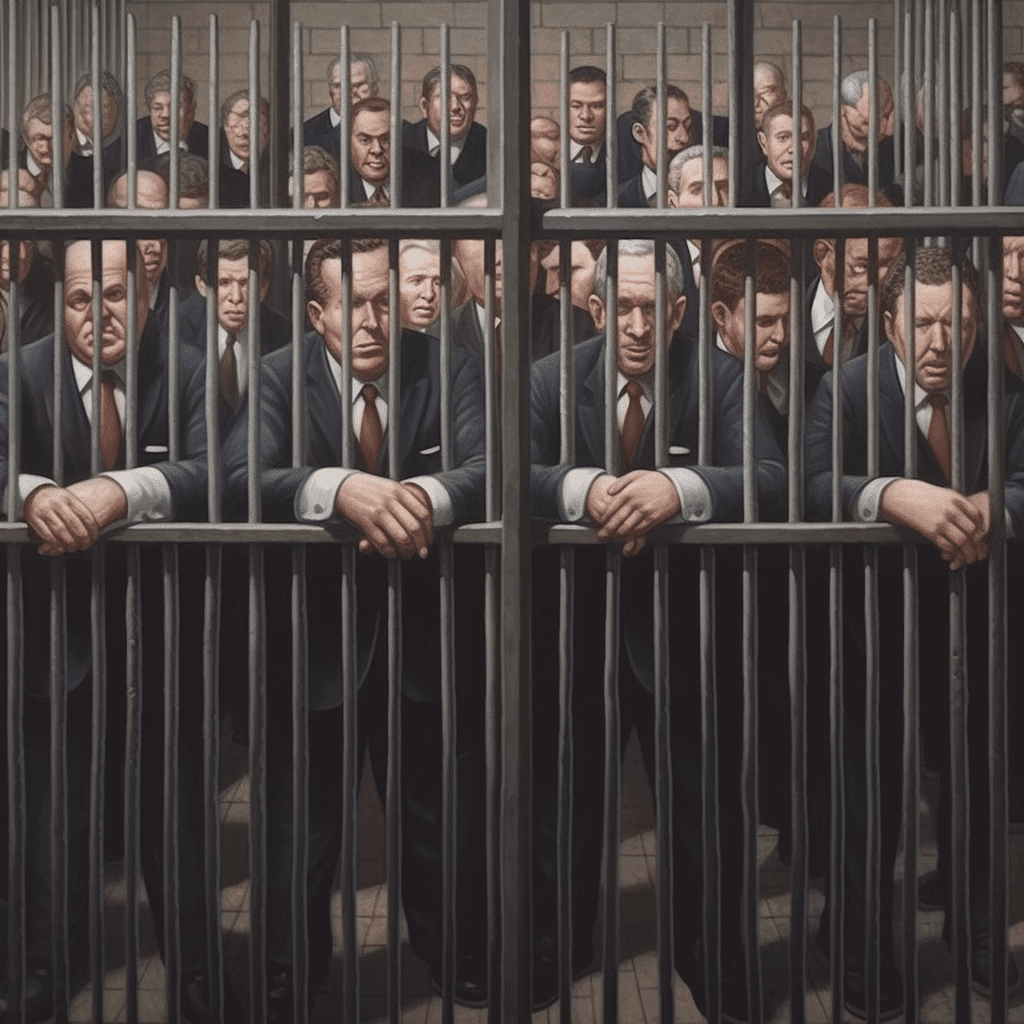Why Prison Doesnt Work

Why Prison Doesn’t Work: A Deep Dive Into the Flaws of the UK Justice System
When it comes to the subject of “Why Prison Doesn’t Work,” the United Kingdom offers a fertile ground for discussion and critical analysis. Despite being a developed country with advanced judicial systems, the UK faces numerous challenges within its prison framework. This article explores why the traditional model of incarceration has fallen short of expectations and looks at the pressing need for systemic reform.
Soaring Reoffending Rates
A glaring issue that highlights why prison doesn’t work is the soaring reoffending rates in the UK. According to the Ministry of Justice, approximately 48% of adults are reconvicted within one year of release. This figure underscores the prison system’s failure to rehabilitate offenders and prevent future crimes, essentially rendering it ineffective as a deterrent.
The Financial Aspect
In the financial year 2019-2020, it cost around £37,543 per prison place per year in England and Wales. This is a significant drain on public resources, diverting funds from other crucial sectors like education, healthcare, and social services. The financial burden adds another layer to the argument that the current penal system is unsustainable.
Mental Health and Overpopulation
British prisons are notoriously overcrowded, leading to an increased risk of violence and deteriorating mental health among inmates. Despite the rise in prisoner numbers, mental health services within these institutions remain inadequate. These conditions serve to compound existing issues rather than resolve them, proving once again why prison doesn’t work.

Why Prisons Dont Work
Social Consequences: The ‘Ex-Con’ Label
The stigma attached to being a former prisoner makes reintegration into society exceptionally difficult in the UK. This often leads to unemployment, homelessness, and ultimately, a higher likelihood of reoffending. The lack of post-release support showcases the penal system’s failure to prepare inmates for a productive life outside the prison walls.

Viable Alternatives: The Way Forward
While the “Why Prison Doesn’t Work” conversation is complex, there are alternative methods and strategies that have shown promise, including:
Community Sentences: Offenders participate in unpaid work or rehabilitation activities, providing a more constructive form of punishment.
Restorative Justice: This approach involves mediated conversations between the victim and the offender, aiming for a mutual resolution and a possible path for reparation.
Educational Programs: Investing in education and skill-building activities for inmates can significantly lower reoffending rates.
Mental Health Interventions: Comprehensive mental health treatment plans should be a staple in the prison system to address underlying psychological issues.
Conclusion
The notion of “Why Prison Doesn’t Work” gains significant traction when scrutinised within the context of the UK’s penal system. High reoffending rates, enormous financial costs, inadequate mental health care, and societal stigmas are all compelling reasons to consider alternative approaches to justice and rehabilitation.
Research indicates that extended prison sentences don’t necessarily deter crime. Rather, incarceration often perpetuates criminal behavior by immersing individuals in an environment rife with criminal elements. Moreover, the cost of maintaining prisons is high, diverting funds from other, more effective crime prevention initiatives.
Similarly, the prevailing belief that prisons rehabilitate offenders is questionable. Although some educational and vocational programs exist, they often fall short of addressing inmates’ needs or aiding their reintegration post-release. This gap in rehabilitation is evident, as nearly 60% of released inmates lack a definitive plan for employment, education, or training. Without proper resources for improvement and societal reintegration, can we expect individuals to successfully rehabilitate and abstain from crime?
Critics argue that prisons largely serve as oppressive institutions that perpetuate cycles of trauma, violence, and social harm. They fail to address the root causes of crime, often related to systemic inequities and social disparities. Although some propose reducing the prison population, alternatives like community sentencing could inadvertently expand the criminal justice net without addressing the core societal issues that lead to crime.
The overrepresentation of individuals from lower socio-economic backgrounds and ethnic minorities in prisons suggests that the system disproportionately punishes certain demographic groups. This disparity raises the question of why corporate figures responsible for large-scale harm, such as the Grenfell Tower fire, often evade imprisonment.
The debate around prison abolition versus reform is complex. Organizations like the United Nations Office on Drugs and Crime cite several reasons for prison reform, including human rights considerations, the disproportionate impact on impoverished communities, public health risks exacerbated by prison conditions, and the detrimental social and economic consequences of imprisonment.
The Howard League for Penal Reform metaphorically describes the prison system as a river: “The wider it gets, the faster it flows — leading those caught in its currents further into cycles of crime, violence, and despair.”
In conclusion, the subject of imprisonment as both a punitive and reformative measure requires thorough scrutiny. We must weigh its purported effectiveness against the extensive harms it causes, both to individuals and society at large. It’s essential to consider the long-lasting ramifications on an individual’s mental well-being, societal reintegration prospects, and overall life opportunities.


